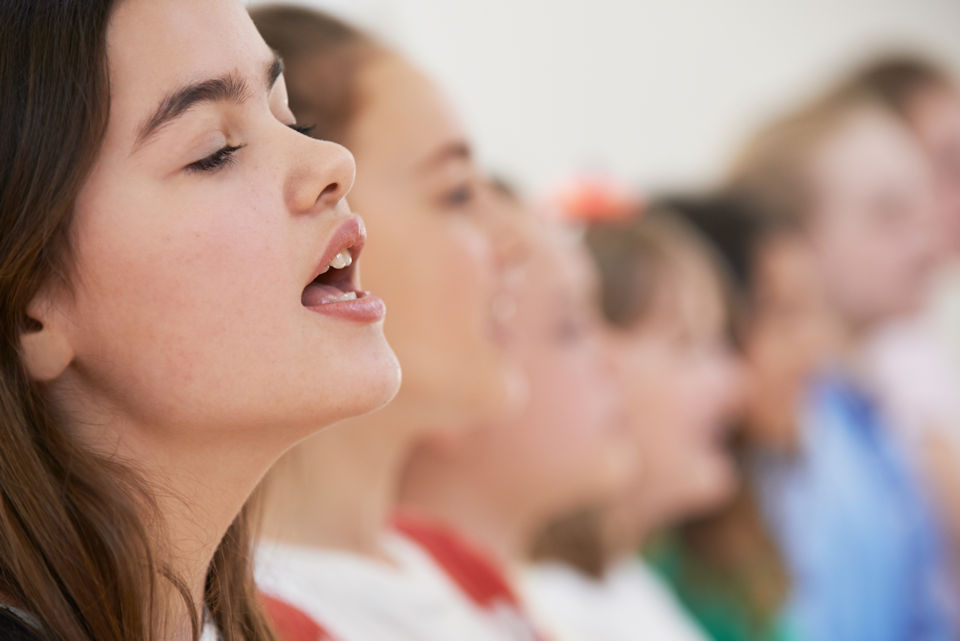Wearing masks, washing hands, no-touch orders of worship. These factors of return to in-person worship are understandable. Why no singing?
KAY DEMOSS
Senior Content Editor
By the rivers of Babylon — there we sat down and there we wept when we remembered Zion.
On the willows there we hung up our harps. For there, our captors asked us for songs,
and our tormentors asked for mirth, saying, “Sing us one of the songs of Zion!”
How could we sing the Lord’s song in a foreign land? ~ Psalm 137: 1-4
The children of Israel gave voice to this lament thousands of years ago. Today, God’s people find themselves in a foreign land of COVID-19. Captive to a virus that spreads by behaviors such as singing, worshipers are remaining silent. And we are sad.
Bishop Bard and leaders of The Michigan Conference recently shared a document — Principles and Directions for Reopening of UMC Facilities in Michigan. Its purpose is to guide churches as they begin planning for a return to in-person worship and other activities. Access the 12-page pdf here.
Some may have been surprised to read the special safety note: There is evidence that singing aerosolizes respiratory droplets and viral particles, making all singing, and especially group singing, a super-spreader, just like sneezing and coughing.
Further, congregations deemed to be moderate or high risk are advised to ban all singing, including choir rehearsals, choir participation in worship, solos in worship, and congregational singing. Low-risk congregations may consider singing only with masks in place.
Worship without singing is hard to imagine. On May 18, Religion News shared a feature, “Clergy, scientists grapple with thoughts of worship without congregational singing.”
The article quotes the Rev. John Witvliet, Director of Calvin Institute of Christian Worship in Grand Rapids. Witvliet told RNS reporter Adelle M. Banks, in a May 13 interview: “Based on the science that we are learning about this week, we are urging and I am personally urging extreme caution.” The worship expert continued, “Singing together in congregations is a practice that we dearly love and are eager to promote, but loving our neighbor is job one here and so the time for fasting from this wonderful practice may be longer than any of us would like.”
Read the RNS feature and more remarks from Witvliet, other pastors, and public health officials. For a more detailed medical explanation of why it’s not safe for a “singing people” to sing together right now, read Singing, the church and COVID-19 by Dr. Heather R. Nelson. Nelson is a church music director with a “day job” as a vocologist and voice teacher. She concludes, “With everything taken together, I would much rather be overly cautious and eventually be proven to have overreacted than to create a situation where I later found I put people in harm’s way.”
As a widely circulated Facebook meme notes: Think it was difficult for your pastor to close services? The decision about when and how to reopen will be even more difficult. Pray for your pastor.
The stakes are high as one CNN news feature reported. A single person testing positive for COVID-19 exposed 180 people in a Mother’s Day service of worship in California. All were urged to self-quarantine and receive a test for the virus. Elsewhere, a government official was quoted as saying, “We don’t want indoor meetings to become hotspots for the virus, and our health experts continue to warn that large groups sitting together for long periods are much more likely to cause the spread of Covid-19.”
Bishop Bard and leaders of The Michigan Conference will continue to offer guidance based on recommendations provided by federal and state public health officials. The original Principles and Directions will be updated online as information becomes available at MichiganUMC.org/health-crisis-risk-management.
Last Updated on September 20, 2022

